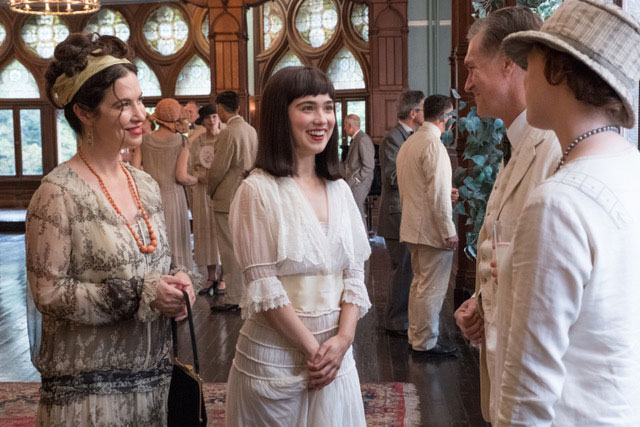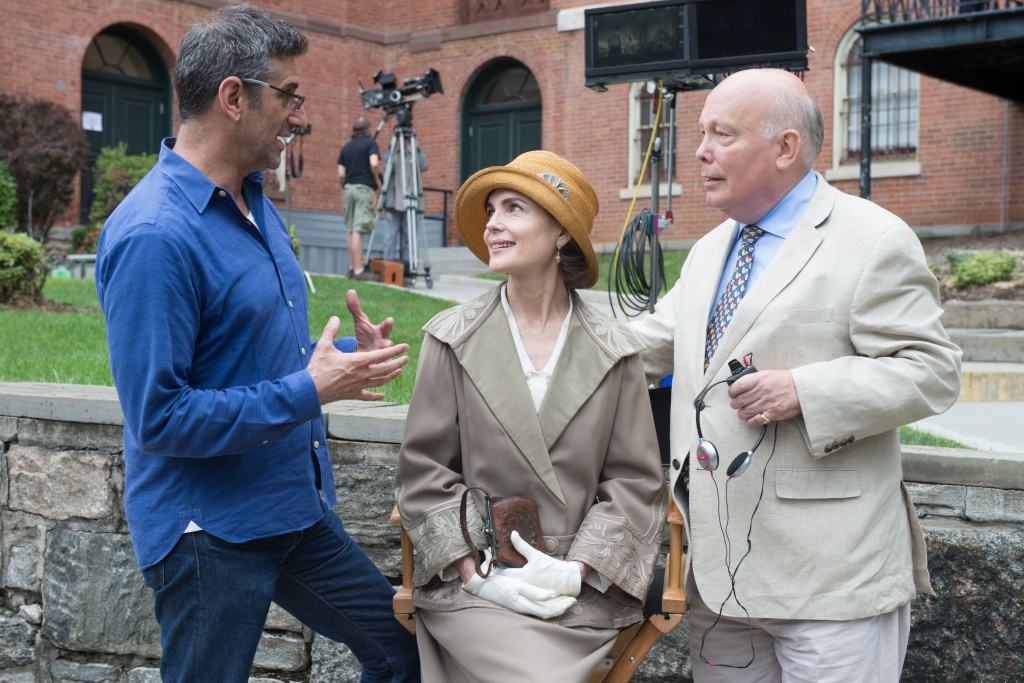In Michael Engler’s feature film debut, two completely different women leave Kansas for New York City, creating a bond that fosters personal transformations.
Out director Engler has helmed episodes of some of the best-loved TV series in recent years including “Downton Abbey,” “Empire,” “30 Rock,” “Sex and the City” and “Six Feet Under.” His first venture into film is “The Chaperone,” a 1920s coming-of-middle-age story with a queer twist.
The film reunites Engler with two of his colleagues from “Downton Abbey”: writer Julian Fellowes, who adapted Laura Moriarty’s book of the same title; and Elizabeth McGovern, who stars as Norma, the title character. Fellowes and McGovern had been working on this film for years when they brought Engler on to direct. He also will direct the forthcoming “Downton Abbey” feature (and no, he cannot discuss that).
Inspired by true events, “The Chaperone” opens in Wichita, Kansas, where the teenage Louise Brooks (Haley Lu Richardson) needs someone to accompany her to New York City so she can study modern dance. Norma, who was orphaned as a young girl, volunteers to take Louise because she hopes to track down her birth mother.
Whereas Norma is prim and proper, Louise is spontaneous, bursting with vim and vigor. They certainly learn and grow from knowing one another, as expected, but unlike similar narratives that are overly saccharine, the women’s bond is never sentimental.
In a recent phone interview, Engler said the characters complement each other.
“Despite their personal views, each woman helps the other achieve the thing they want — though it is not what they would want personally.”
The director said he admires Julian Fellowes’s script because it “tells an intimate story about people and the subtle and powerful ways they change each other in times of change. The characters determine their destiny and interact with the limitations around them and their time, social class, and economic situation. How they encounter different obstacles or opportunities, determines their character.”
“The Chaperone,” in some ways, parallels society today. Period pieces resonate most when they are relevant to contemporary themes.
“There is a generation of Victorian women who fought for voting, and the next generation, the flappers, thought their mothers were stiff, uptight, corseted, and dismissed them for being behind the times,” Engler said. “But the [flappers] couldn’t be women without their [mothers’] fight. I see this in the millennials and the tensions and allegiances they share with previous generations.”
The human condition doesn’t necessarily change, even as time does, Engler added.

Victoria Hill and Haley Lu Richardson
“People’s lives and sexuality were being re-examined. There was so much shame around sexuality and abuse. That’s always been there and problematic, and you have to deal with it and look at it with distance. If you don’t, it is just nostalgia. People are always going through the same thing, so it’s healing [to see it in a period piece]. You feel less alone and trapped in your own reality.”
Would the filmmaker have liked to have lived in that era?
“Well, that’s interesting,” he replied. “I think being a gay artist in New York, probably the ’20s was the beginning of the time when one could try to have a life, career, and circle of friends. It was probably the beginning in America when currents started to open up and it’s not unrelated to the freedoms of people to live in different ways. But I don’t have nostalgia for it; it would have been tough in many ways.”
Engler said his own coming-of-age began when he moved to New York to go to college at New York University.
“I began to take ownership of my creativity and accept that my life might be difficult. I came out at that time to my family, and everyone else in my life, and owned it. It’s one thing to say who you are, and another to free yourself from all the software loaded into you — your internalized feelings, fears and judgments. You have to cleanse or move beyond or grow beyond them. Because we have been raised by fear, questions and judgments, you have to do the work to free yourself to live differently or it will constantly pull you back.”
Norma awakes to her point of view in “The Chaperone,” providing the film’s emotional core. She gains new experiences that shape her as she comes to terms with her sexuality and sense of self,” Engler said.
“Norma surprises herself, finding a strength and clarity and an ability of happiness she didn’t think she had.”
Watching her grow and come into herself, is what is especially gratifying about Engler’s lovely, touching film.
“The Chaperone” opens on April 26 at the Landmark Ritz at the Bourse.
